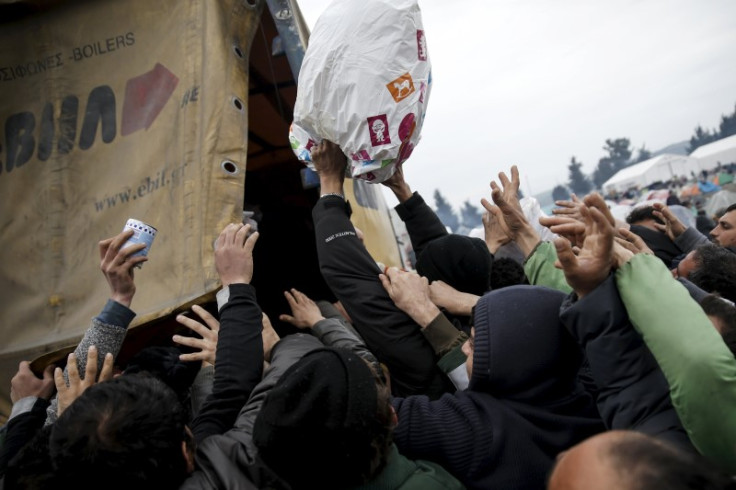Refugee crisis: Amnesty accuses EU of 'double speak' in deal to return migrants to Turkey

Amnesty International says a deal between the EU and Turkey over migrants and refugees has failed to hide the EU's "dogged determination to turn its back on a global refugee crisis". Under the deal, migrants arriving in Greece will be sent back to Turkey if they do not apply for asylum or their asylum claim is rejected.
There is scepticism about the legality of the proposal and whether the agreement can work in practice. German Chancellor Angela Merkel said: "There are big legal challenges that we must now overcome." Most controversial of all is sending back virtually all irregular migrants back to Turkey from the Greek islands.
John Dalhuisen, Amnesty International's Director for Europe and Central Asia, said promises by the EU to respect international and European law "appear suspiciously like sugar-coating the cyanide pill that refugee protection in Europe has just been forced to swallow", according to a BBC report.
"Guarantees to scrupulously respect international law are incompatible with the touted return to Turkey of all irregular migrants arriving on the Greek islands as of Sunday [20 March]," he added.
Turkey will receive aid and political concessions as part of the deal, which Turkish Prime Minister Ahmet Davutoğlu has applauded as an "historic" day. But Amnesty's Dalhuisen warned that Turkey is "not a safe country for refugees and migrants".
The UN refugee agency (UNHCR) will take part in the scheme, but it is uncomfortable with what has been agreed. "How this plan is to be implemented is thus going to be crucial. Ultimately, the response must be about addressing the compelling needs of individuals fleeing war and persecution. Refugees need protection, not rejection," the organisation stated in a press release.
The conflict in Syria is the main driver of this global crisis, forcing more than 4.8 million Syrians to become refugees. Most of these people – about 2.97 million in 2015 according to the UNHCR – travel to neighbouring countries of Turkey, Lebanon and Jordan.
"Massive refugee flows are a global responsibility," said UN High Commissioner for Refugees Filippo Grandi. "The tragedy of Syria has shown that this cannot be just the responsibility of two or three countries bordering a country at war – the responsibility has to be shared more widely."
A new Dachau?
The Dachau concentration camps were built by the Nazis in 1933 to house political prisoners.
While they were forced-labour camps, rather than centres for genocide – such as Auswitzch and Treblinka – brutal punishments, poor nutitrion and inadequate sanitary conditions at the camps killed at least 32,000 prisoners during the 13 years the Nazis operated it.
However, thousands more prisoners are believed to have died, but their deaths were not recorded.
When the camps were liberated by Allied forces in 1945, it was found to house 30,000 people. A third of the prisoners were sick from illnesses including typhus fever.
Greek Interior Minister Panagiotis Kouroublis has compared conditions at the Idomeni camp, on the Greece's border with Macedonia, to a Nazi concentration camp. "I wouldn't hesitate to say that this is a modern Dachau," he said during his visit to the camp where thousands of people live in improvised tents, deprived of basic necessities.
Idomeni "is a logical result of closed borders," he said, adding that Greece "believes in Europe without borders".
While Dachau was not a death camp, such as Auswitchz or Treblinka, at least 32,000 prisoners died during the 12 years the Nazis operated it.
European Council President Donald Tusk emphasised there had been unanimous agreement regarding the deal between Turkey and the 28 EU members. "It excludes any kind of collective expulsions," he added. The returns are to begin on 4 April, as would resettlement of Syrian refugees in Europe.
© Copyright IBTimes 2025. All rights reserved.




















